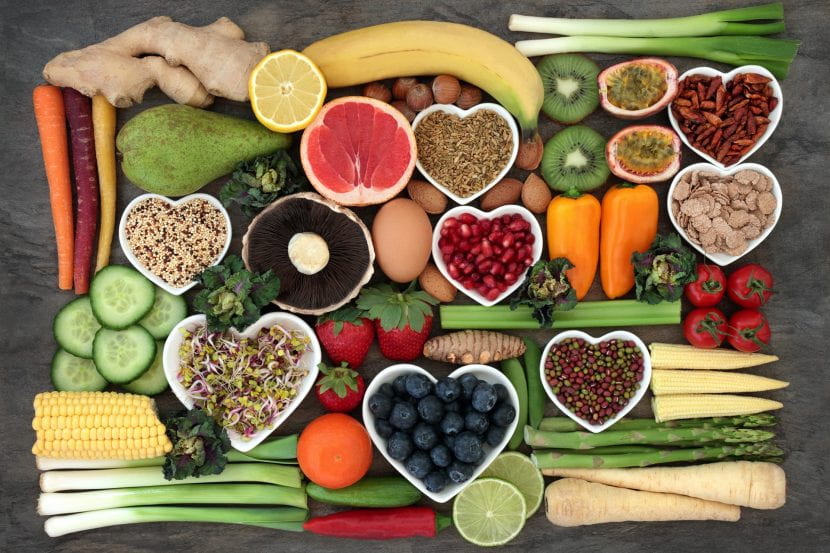As mentioned in our previous post, a well balanced vegetarian diet requires careful planning. Our nutritional needs can be met without consuming meat and some or all of the animal products by focusing on a few key nutrients. Below are some examples of nutrients vegetarians need to focus on:
Protein
Protein plays many important roles in the body and can be easily consumed by eating a variety of foods.
Vegetarian sources of protein include:
- Beans and legumes
- Nuts
- Soy products – edamame, tofu, tempeh, soymilk
- Eggs
- Dairy products
Example recipe: Colorful Quinoa Protein Bowl from VegKitchen
Calcium
Calcium is an important nutrient for the development and maintenance of healthy teeth and bone. While cow milk is usually the first to come to mind when people think of calcium, it is only one of the many food sources of the nutrient. Plant-based milk such as almond milk is often fortified with calcium and therefore can be consumed as an alternative calcium source. Remember to double check the food label and ingredient list to make sure it is fortified.
Vegetarian-friendly calcium sources include:
- Leafy green vegetables such as spinach and kale
- Broccoli
- Fortified plant-based milk – almond milk, soy milk, oat milk
- Fortified cereal
- Calcium-set tofu
- Dairy products
Example recipe: Thai-Flavored Tofu and Broccoli from VegKitchen
Vitamin D
Similar to calcium, vitamin D also plays an important role in bone health. With exposure to sunlight, you can produce vitamin D under your skin. Vitamin D supplement might be needed if you don’t eat enough fortified foods and have limited sun exposure.
Vegetarian sources of vitamin D include:
- Fortified foods include plant-based milk, orange juice, and cereals
- Eggs
- Dairy products
Iron
Iron is an essential mineral that has many important jobs in the body including transporting oxygen. You can refer to our previous posts for more information. To increase iron absorption from plant sources, you can eat vitamin C rich foods along with foods containing iron. Cooking in an iron skillet can also boost your iron intake.
Vegetarian sources of iron include:
- Dark green leafy vegetables
- Beans and peas
- Dried fruits include dried apricots, prunes, raisins
- Fortified cereals
Example recipe: Mediterranean Spinach with Pine Nuts and Raisins from VegKitchen
Zinc
Zinc plays an important role in the proper functioning of the immune system. Similar to iron, zinc from plant sources is not easily absorbed as it is from animal sources and thus needs to be consumed in greater quantities.
Vegetarian sources of zinc include:
- Whole grains
- Wheat germs
- Beans such as kidney beans and chickpeas
- Fortified cereals
- Milk products
Example recipe: Chickpea Wrap from VegKitchen
Vitamin B12
Vitamin B12 is found in foods of animal origin such as eggs and dairy products, and also in fortified foods.
Vegetarian sources of B12 include:
- Nutritional yeast
- Fortified foods such as breakfast cereals (remember to check the label), soymilk, and meat analogs
- Eggs
- Fortified dairy products
Refer to the following pages for more information: MyPlate Tips and Academy of Nutrition and Dietetics.
Are you interested in learning more about vegetarian diets and plant-based recipes? Let us know by commenting below!





